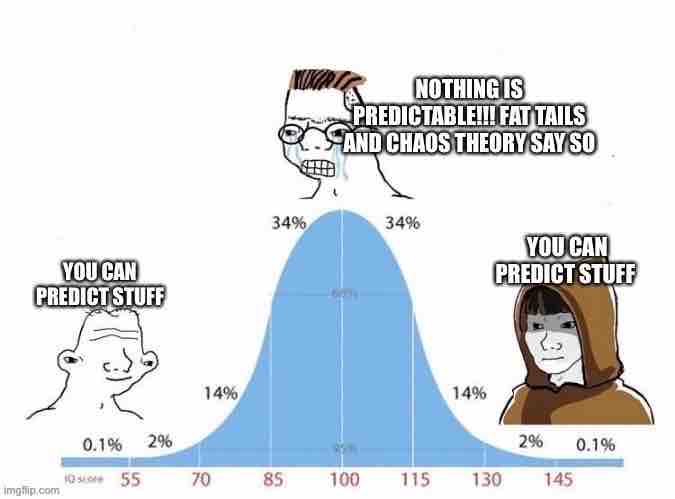I just finished reading The Three Body Problem. At the end of the book is a preview of Cixin Liu’s book Supernova Era. A bit of dialog in that preview stood out to me because it is touches on themes I’ve written about before.
“I’ve heard about that. When a butterfly flaps its wings, there’s a hurricane on the other side of the world.”
“That’s right,” Specs said, nodding. A chaotic system.”
Huahua said, “I want to be that butterfly.”
Specs should his head again. “You don’t understand at all. We’re all butterflies, just like every butterfly. Every grain of sand and every drop of rain is a butterfly. That’s why the world is unpredictable.”
Most popular interpretations of chaos theory are misguided. Two such misguided interpretations are illustrated in the passage above.
When hearing of chaos theory, many jump to the same conclusion as the student in the excerpt above who wants to be the butterfly that starts a hurricane. They think chaos theory implies that butterfly effects can be engineered. This is the optimistic fallacy.
Sometimes a small deliberate effort can lead to a large intended conclusion. But chaos theory would not predict this. In fact, reasoning by analogy from chaos theory would suggest this is impossible. More on that here and here.
Another misguided interpretation of chaos theory is the pessimistic fallacy that “the world is unpredictable,” as Specs says above. But we know that’s not true. Some aspects of the world are very predictable. As Orphan Annie says, the sun will come out tomorrow.
Even people who say the world is unpredictable don’t live as if the world were unpredictable. Deep down they know full well that in important ways the world is predictable.

It’s true that not everything is as predictable as we may have imagined, weather being a famous example. Chaos theory was born out of the surprising observation that weather simulations are very sensitive to changes in initial conditions.
We do not live in a world in which we can tickle a particular butterfly in order to deliberately direct the course of the future. But neither do we live in a world without discernible causes and effects.
The post Bad takes on chaos theory first appeared on John D. Cook.